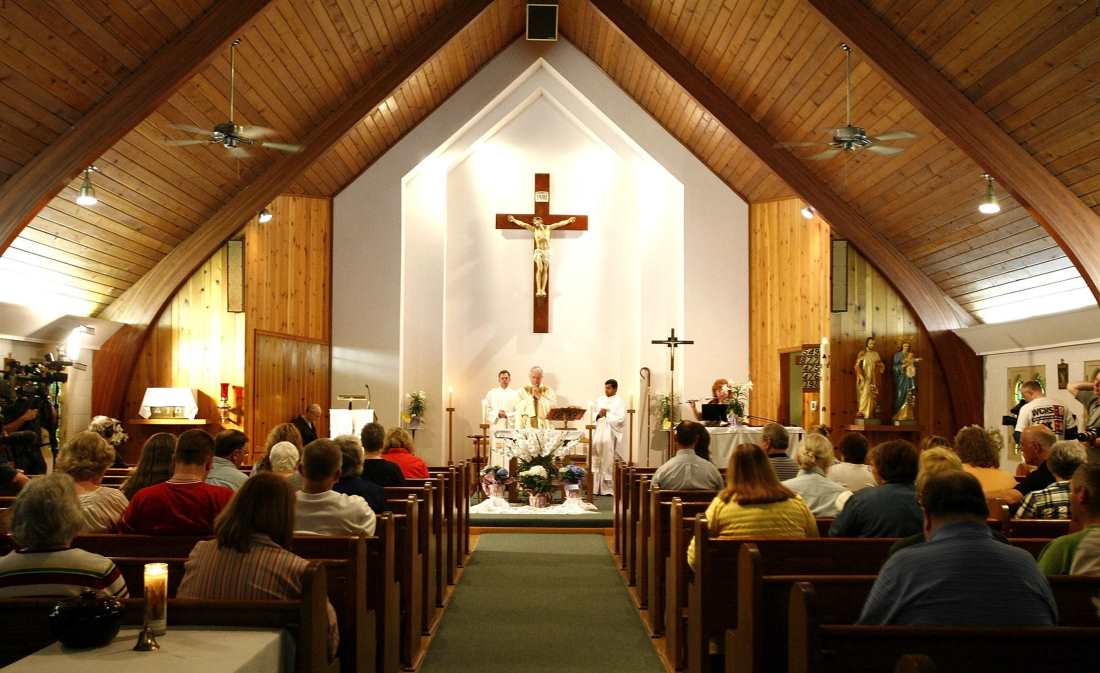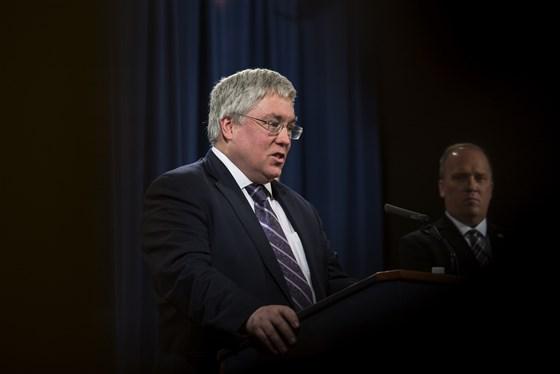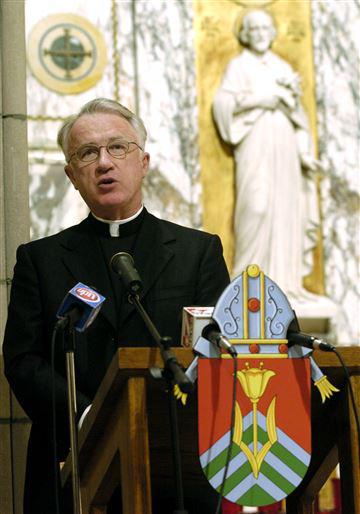|
West Virginia accuses Catholic diocese of violating consumer protection law by hiring pedophile priests
By Corky Siemaszko
The West Virginia attorney general filed a lawsuit Tuesday claiming that a local Roman Catholic diocese and former bishop failed to protect children from predator priests and teachers — and violated consumer protection laws by not alerting parents there were abusers on the payroll. The suit takes what appears to be a novel approach by using state consumer protection laws, with parents as "purchasers" of services for their children. Attorney General Patrick Morrisey claims in the suit that former Bishop Michael Bransfield and the Wheeling-Charleston Diocese engaged in "intentional concealment." "Omissions of these material facts caused the purchasers of their educational and recreational services to buy inherently dangerous services for their children for many decades,” the court papers state. The lawsuit, which cites the specific West Virginia code that Bransfield and the diocese allegedly violated, is seeking a permanent court order “blocking the diocese from continuation of any such conduct.” The attorney general told NBC News through his spokesman, “We believe this is the first lawsuit of its kind against the church.” Mitchell Garabedian, the lawyer featured in the film, “Spotlight,” who is best known for going after predator priests in Boston, agreed. “I have never heard a similar action brought such as that in West Virginia,” Garabedian said in an email to NBC News. “The action certainly will raise concerns for the Diocese of Wheeling-Charleston because of the transparency which will be provided through litigation and because of the adverse economic effect on the Diocese the end result may provide.” Marci Hamilton, a law professor and head of CHILD USA, a nonprofit that fights child abuse, said she too has not heard of anyone using this legal strategy against a Catholic diocese. A database search of news stories found that in 1994 lawyers for a Michigan man allegedly abused by a local priest charged in a lawsuit that the Archdiocese of Detroit had engaged in fraudulent concealment, which is a legal strategy that is usually used in consumer protection cases. Hamilton in that story said the tactic "has merit" but it was not immediately clear if the strategy employed by the lawyers worked. In a statement, the Diocese of Wheeling-Charleston said it learned from the media that Morrisey had filed a lawsuit alleging the diocese had "violated the West Virginia Consumer Credit and Protection Act." "The Diocese will address the litigation in the appropriate forum," it said. "However, the Diocese strongly and unconditionally rejects the Complaint’s assertion that the Diocese is not wholly committed to the protection of children." Bransfield retired as bishop in September 2018 and could not be reached for comment. In the lawsuit, Morrisey charged that the diocese’s advertised mission was to provide children a safe learning environment, but instead it knowingly hired priests who had been credibly accused of child sexual abuse and hired lay workers without doing adequate background checks. Among others, the complaint alleges that the diocese covered up for a priest named Patrick Condron, who worked in West Virginia in the 1980s and was accused of “grooming” a student for sex. After Condron admitted that he sexually abused a student at St. Joseph Preparatory Seminary High School in the city of Vienna, the diocese sent the priest for treatment. When Condron completed that, he was reassigned to Wheeling Catholic Elementary School from 1998 to 2001 — and parents were never notified that an admitted pedophile was teaching at the school. Another example cited in the suit is that of Victor Forbas, who worked for the diocese from 1965 through 1983. The diocese ordained him despite being aware that he had been accused in 1962 of sexually abusing a child in Philadelphia. “Frobas was moved frequently due to suspicions of and sometimes allegations of sexual abuse of children,” the suit states. One of those jobs was director of a Catholic summer program for children called Camp Tygart in Huttonsville, West Virginia, where he was accused of molesting more children. After undergoing psychological treatment, Frobas got a new job in 1977 — chaplain at Wheeling Central Catholic High School, the suit states. Frobas eventually moved to a Franciscan community in St. Louis, Missouri, where he was accused to molesting more children. He eventually served two years in prison before dying in 1993. Morrisey charged the diocese also failed to adequately vet lay employees like Ronald Cooper, who was hired as a high school teacher in 2011 but failed to disclose that he had been convicted of third-degree rape in the Washington state back in 1985. Cooper was eventually fired in 2013, but the diocese never told the parents of the children who attended Madonna High School in Weirton, West Virginia, that a convicted felon had been teaching their kids. Contact: Corky.Siemaszko@nbcuni.com
|
.
Any original material on these pages is copyright © BishopAccountability.org 2004. Reproduce freely with attribution.


